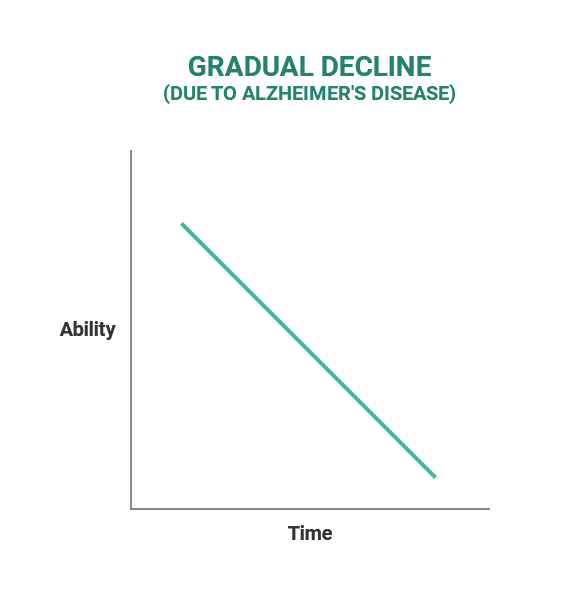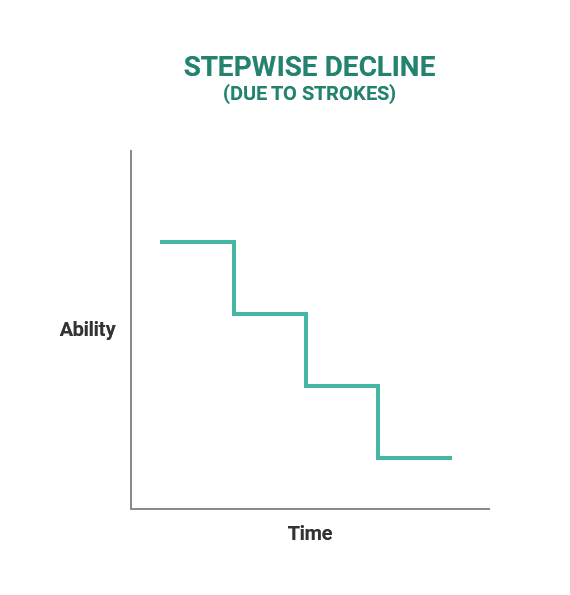

Vascular dementia is also known as multi-infarct dementia. It is caused by chronically impaired blood flow to the brain, often due to stroke, that leads to the death of brain cells due to insufficient nutrients and oxygen.
While vascular dementia may be a consequence of a single cerebrovascular accident and therefore sometimes being called "post-stroke dementia", people may also show symptoms after having a number of small and unnoticeable strokes, called silent strokes.
People who develop vascular dementia due to a bigger stroke may show a sudden change in personality, a decreased level of cognitive functioning, confusion and other signs of dementia according to the area of brain affected. People who develop vascular dementia due to silent strokes may show stepwise decline in memory and reasoning abilities after periods of stability.
As the damage to the brain is permanent, current medication cannot cure vascular dementia. However, it is very important for people with vascular dementia to reduce the risk of further strokes because they often have other cardio-cerebrovascular diseases. On the other hand, specific training may develop other areas of the brain so that they can make up for loss of functioning.

